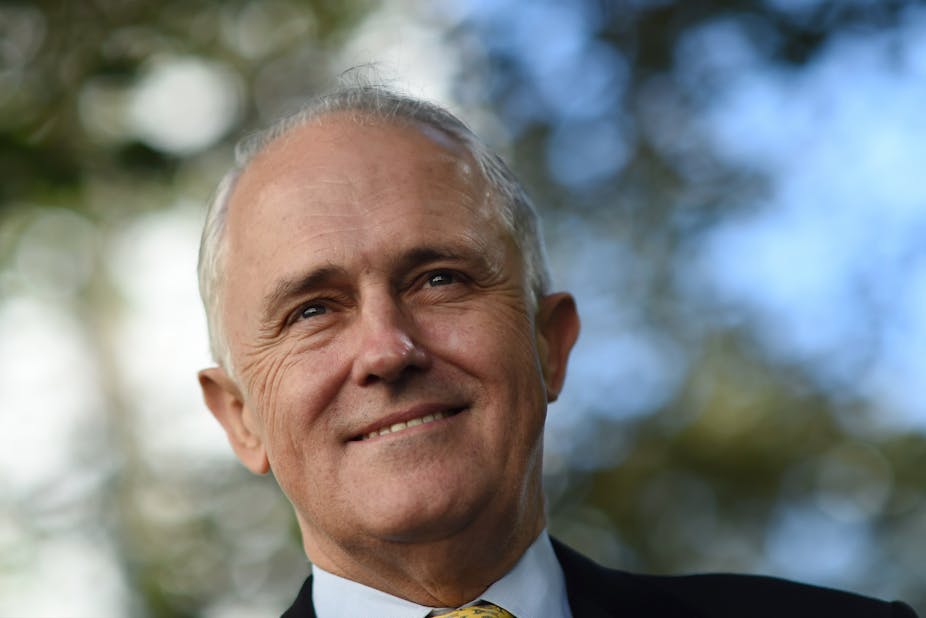In the latest example of the government’s cack-handedness, Attorney-General George Brandis on Sunday promised a plebiscite on same-sex marriage this year, only to have the Prime Minister’s Office hang him out to dry within hours.
Brandis was quite clear when he went on Sky on Sunday morning. “The plebiscite will occur before the end of this year,” he said. “We will be going to the election promising a plebiscite before the end of the year.”
He even indicated that if, as he expected, the vote was carried, the legislation would be passed by the end of 2016. These weren’t remarks on the run, or made under pressure. It appeared he was delivering a formal announcement of the timetable.
But then Malcolm Turnbull’s spokeswoman said the government was “committed to a plebiscite as soon as possible after the election. The timing is dependent on the election timing.”
It was obvious that by committing to a plebiscite this year Brandis was implying either a double dissolution or an early ordinary election. Turnbull has urged us to expect the poll in August, September or October, despite mounting talk of a double dissolution. If there were an October election, there certainly would not be time for a 2016 plebiscite; the same likely goes for a September poll.
Brandis might have been just assuming a July or August election. The odds on a July double dissolution have shortened recently, although the mechanics – namely getting the necessary supply to run government – remain as opaque as ever.
Brandis’ office could not enlighten about the confusion, saying he had nothing to add to his morning interview.
The Brandis snafu is just part of wider pattern of disarray in the government.
Last week it cancelled a meeting of state and federal treasurers due this week, which had been originally set to focus on tax. Now it will be combined with the next Council of Australian Governments (COAG) meeting in April. COAG itself has been delayed from its April 1 date.
With political damage from the chaotic tax debate taking its toll, this week the government’s attention will sharpen - cabinet’s expenditure review committee meets on tax in Adelaide on Tuesday. There is also a cabinet meeting that day, with tax presumably discussed generally or specifically.
Meanwhile, much of the public political chatter this week will be taken up with the stories in journalist Niki Savva’s book The Road to Ruin, centred particularly on the relationship between Abbott and his chief-of-staff, Peta Credlin.
Savva has many people on the record with tales of horror about Credlin, general titillation and accounts of failed attempts to save Abbott from himself.
Liberal senator Concetta Fierravanti-Wells, then a parliamentary secretary and now a minister, told Abbott the night before the February 2015 unsuccessful spill motion: “Rightly or wrongly, the perception is that you are sleeping with your chief-of-staff. That’s the perception and you need to deal with it.” He denied the rumours of an affair and said he was not going to move Credlin on.
In a conversation later with Fierravanti-Wells, Credlin – who also denied the affair rumours – said she believed that without her Abbott would not be able to do his job.
In another anecdote, a Liberal MP and their staffer reportedly saw Credlin feed Abbott from her fork at a restaurant and later “she put her head on his shoulder to complain about being tired, to which Abbott said they must go soon”.
There’s a great deal more, including Credlin tantrums and Abbott’s concern to accommodate her.
Abbott and Credlin have hit back, saying Savva did not contact them. Savva said on the ABC: “What I decided was that Tony Abbott and Peta Credlin, any day, any night, can get out there and give their version of events. And their version of events often differs very wildly from everybody else’s and there are people who had been abused for years during that administration who suffered in silence. And I thought they should be given the chance to tell their story.”
Those around Turnbull have hoped and believed the book will be a body blow against Abbott. It will be a further negative mark on the ledgers of Abbott and Credlin – but it will not take care of the “Abbott problem”.
While Abbott continues to talk critically, whether explicitly or implicitly, and while the government appears disorganised, he will add to the perception of disruption and disorder.
A message from Abbott published in The Weekend Australian wouldn’t have given much comfort to Turnbull. Abbott said he would continue to defend his legacy, and he would speak on issues in the partyroom.
He did go on to say Liberals had an obligation to win the election, but this came with a backhander: “Whatever might be my concerns about the Turnbull government, they pale in comparison with the prospect of a Shorten Labor government.”
On Friday Abbott had a catchy new slogan for the election run-up, condemning the opposition’s “five new taxes”. He nominated these as a housing tax (restriction of negative gearing), a wealth tax (cutback of capital gains discount), a seniors tax (superannuation changes), a workers tax (increase tax on cigarettes) and a carbon tax (proposed emissions trading scheme).
What Abbott was saying is that the Turnbull government should not be making any tax changes that weaken the contrast with Labor. This is at odds with the government’s reduced but ongoing consideration of doing something on the revenue side to finance income tax cuts.
Abbott has entered a dark place. The Turnbull government is all over the place. It’s an unfortunate mix – and, once again, Labor must hardly believe its luck.

